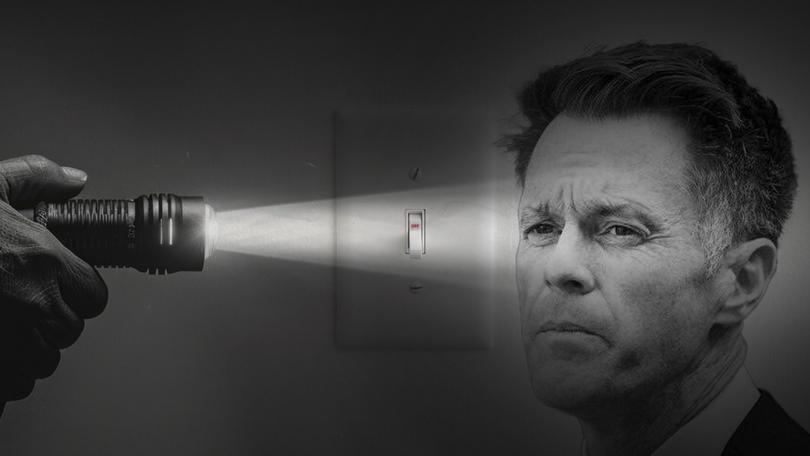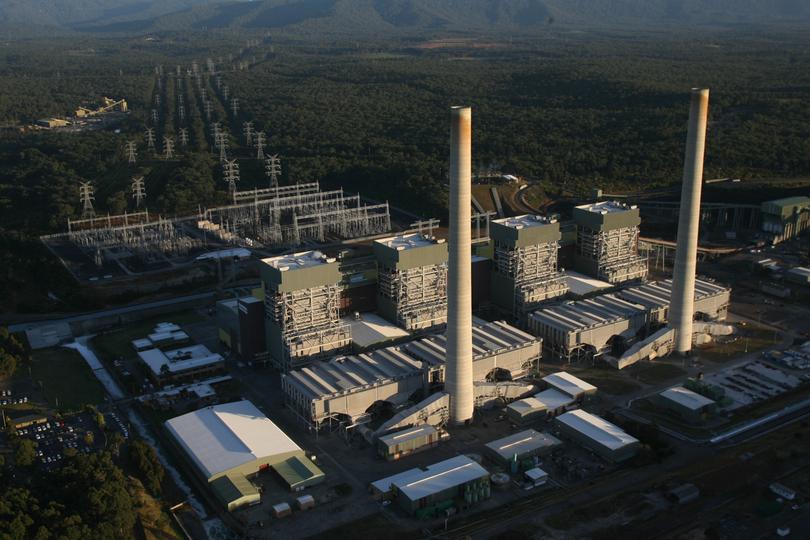NSW power crisis: Chris Minns slammed for dishwasher warning as State braces for blackouts in sweltering heat
NSW Premier Chris Minns’ warning to locals to turn off their dishwashers has been slammed by the Coalition as the State braces for blackouts amid a sweltering heatwave.

NSW Premier Chris Minns’ warning to locals to turn off their dishwashers has been slammed by the Coalition as the State braces for blackouts amid a sweltering heatwave.
It comes as the Australian Energy Marker Operator (AEMO) promised to use its emergency powers to ensure NSW had sufficient electricity supply as it swelters through the heat.
Temperatures across NSW soared on Wednesday — up to 12C above average with readings in the high-30s — putting additional strain on the energy grid at the same time that a number of coal-fired power stations are offline with a range of approved maintenance services.
Sign up to The Nightly's newsletters.
Get the first look at the digital newspaper, curated daily stories and breaking headlines delivered to your inbox.
By continuing you agree to our Terms and Privacy Policy.Meanwhile, the Minns Government urged residents to turn off or not use their appliances on Wednesday afternoon to reduce the risk of overloading the “tight” energy reserve.
“We are asking you not run your dishwasher, not to run your washing machine this afternoon... and you’ll be helping the grid,” Mr Minns said.
“We’re hoping that these measures reduce the amount of demand on the energy system over that crucial 3pm to 8pm period, and as a result, won’t lead to load shedding or blackouts.”
Federal shadow treasurer Angus Taylor slammed the warning, saying NSW needed more supply in the energy market.
“The best way to get prices down, ensure we have reliability and I note today the New South Wales Premier coming out saying everyone’s got to turn off their washing machines this afternoon,” he said.
“I mean, seriously, we need more supply in the market, and we need to have every technology available to do that, whether it’s gas, nuclear in time, of course coal, renewables, across the board, we shouldn’t be restricting technologies.
“This government likes to pick winners. It thinks it knows better than everybody else, and we pay a price, and clearly everyone in New South Wales is going to be seeing part of that price today when they’re asked to turn off their washing machines this afternoon.”
Premier Chris Minns said the State Government had “well-honed procedures in place for scenarios like this”, and called for residents to do what they can to reduce the chances of mass outages, known as “load sheddings”
“It’s forecast that there may not be enough supply to be able to provide that to all users,” Mr Minns said.
“What happens in that case is that there are decisions made to have outages, sometimes known as load sheddings.
“They’re usually small, and they’re concentrated in different areas, if they have to happen, and they happen very quickly. That’s why we’re trying to say to people now — a little bit that you do now actually reduces the chances of this happening to everyone.”
He and Energy Minister Penny Sharpe urged residents to reduce their electricity usage between 3pm to 8pm.
He said the Government was monitoring the situation closely and would communicate with the public as information became available.
Ms Sharpe said as well as the AEMO selected “panel of large businesses to voluntarily reduce demand” the Government and agencies — including local councils and agencies of the Commonwealth and ACT — would also voluntarily reduce demand in the peak.
“Agencies will do this by increasing the set point of air conditioning where safe and feasible, closing blinds, turning off non-essential lighting and turning off equipment when not in use,” she said.
She said the Government had also asked Water NSW, Sydney Water, Hunter Water, and Central Coast and City of Sydney Councils to shift their electricity usage to off-peak periods.
“These actions will free up power supply when pressure on the network is greatest.”
The AEMO issued a notice to the energy industry warning that it remains short of the reserve capacity of electricity it needs to ensure stable supply to the State.
It said it must negotiate with companies to reduce demand under a rarely-used scheme known as Reliability and Emergency Reserve Trader (RERT).
On Wednesday morning Federal Energy Minister Chris Bowen had brushed off blackout concerns, saying if “no other coal-fired power units break down today, there should be enough power in NSW”.
Hours later in Question Time, Mr Bowen said the AEMO’s lack of reserve warning is “not an unusual circumstance”.
He rebuffed a pointed question from the Opposition as to whether this was what “Labor’s plan for a renewable energy superpower” looked like, saying the previous government had seen 36 lack
“In fact, in the last quarter of the Morrison government, lack-of-reserve notices were issued 36 times and in the quarter before that, 55 times, Mr Speaker,” Mr Bowen said.
“Now, as a result, of the lack of reserve notice that AEMO has issued, I’m advised that they have secured extra supplies as a result of the situation that is commonly put in place which is to provide extra supplies, which means that AEMO has advised me that there are enough reserves for NSW this afternoon.
“Of course, they are taking necessary precautions in case there is another unexpected outage of a coal-fire unit, which is always a risk.”
AEMO had previously warned that unless there was a response from generators, there could be an “interrupted load” (a blackout) in NSW at about 4.30pm AEDT on Wednesday.

A number of NSW coal-fired power stations are operating at reduced capacity to complete planned maintenance — which is essential to keep the stations, some of the oldest in the country, reliable through peak seasons of Summer and Winter.
Origin Energy’s Eraring coal power station — which generates about 25 per cent of the state’s energy — is operating at only three-quarters of its usual capacity with one unit offline due to planned maintenance, according to reports.
The station was set to be running at full capacity by Wednesday, but the broadsheet understands it will not return to full capacity until the end of Friday.
The state’s other coal-fired power stations, AGL’s Bayswater and Delta Electricity’s Vales Point, are also undergoing approved maintenance and are not expected to return to service until December.
AEMO must approve maintenance services at the coal-fired power stations, which are usually undertaken during periods of lower demand, but the operator was caught off guard by unusually warm weather.
The Sydney Basin briefly became the hottest place in the world on Wednesday as temperatures soared past 30C well before the sun hit its peak — the title went to Sydney Airport, which recorded 38.2C by 12.15pm.
Parts of Sydney, particularly the west, almost hit an incredibly muggy 40C that will follow into an unseasonably warm night and another hot, albeit milder, cloudy day on Thursday.
